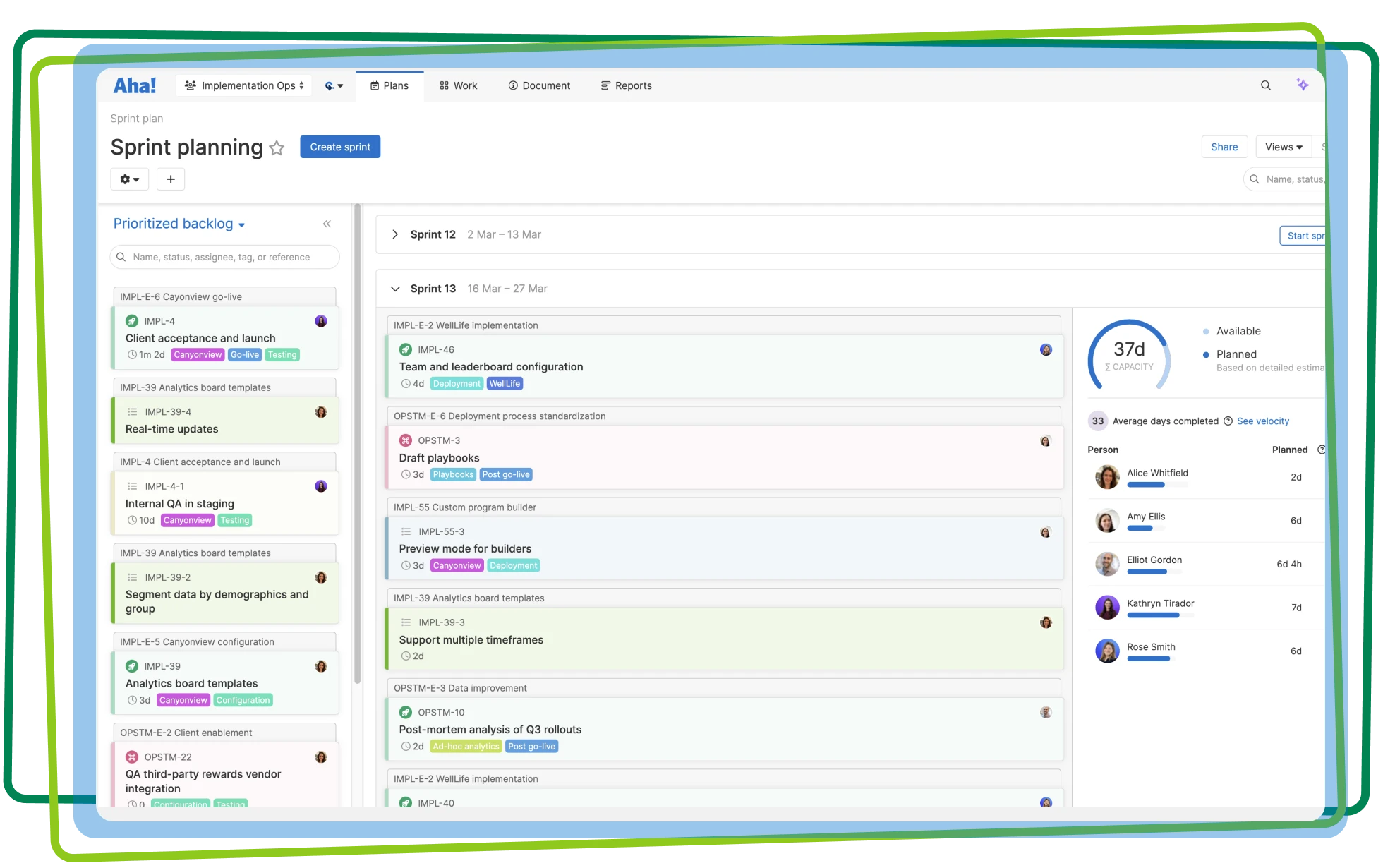

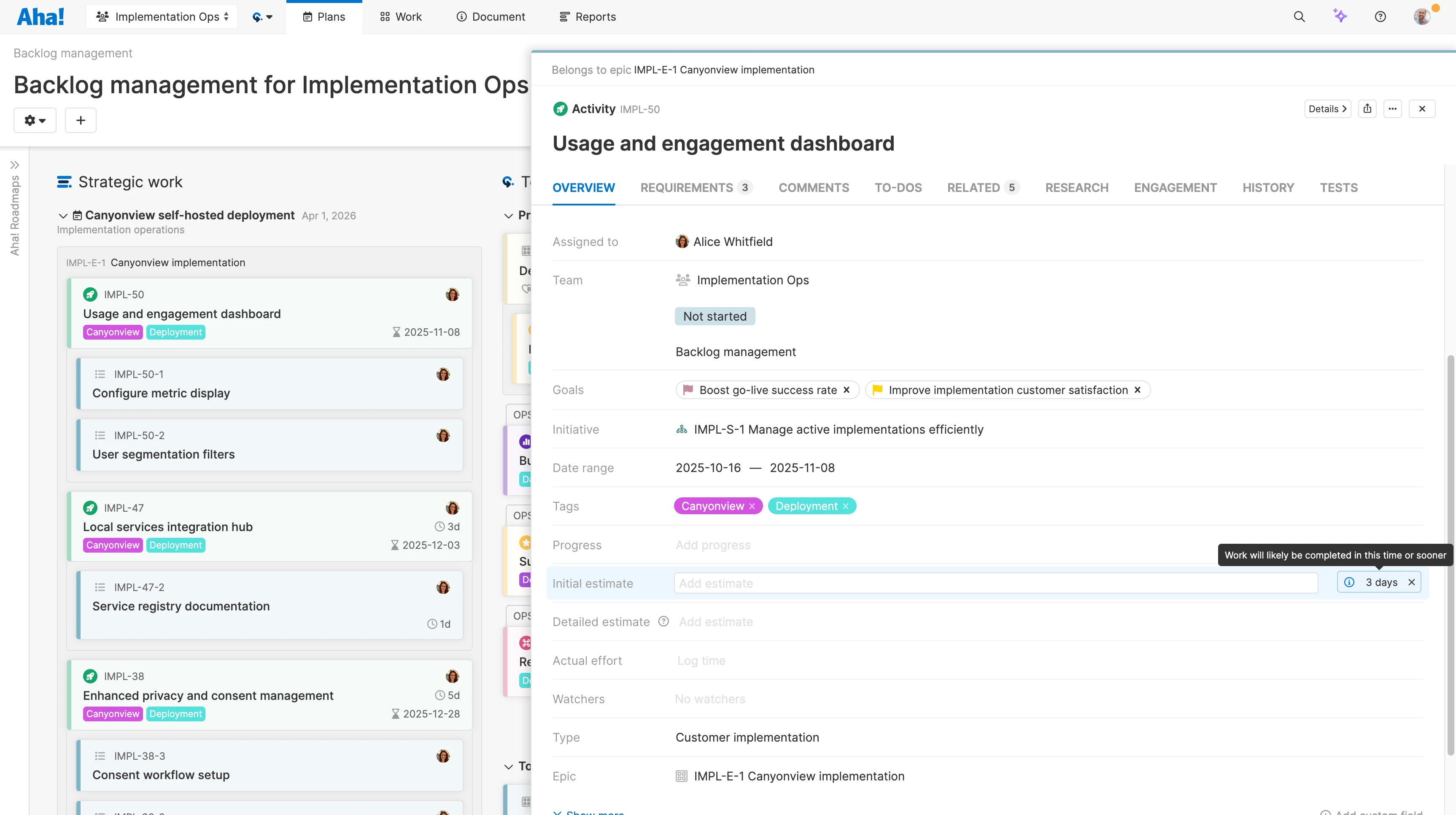
Identify what it will take to complete each task. Start with an initial estimate to inform early project planning. Generate suggested estimates based on your team's historical cycle time for similar work. This removes the guesswork so you can set credible delivery dates from the start.
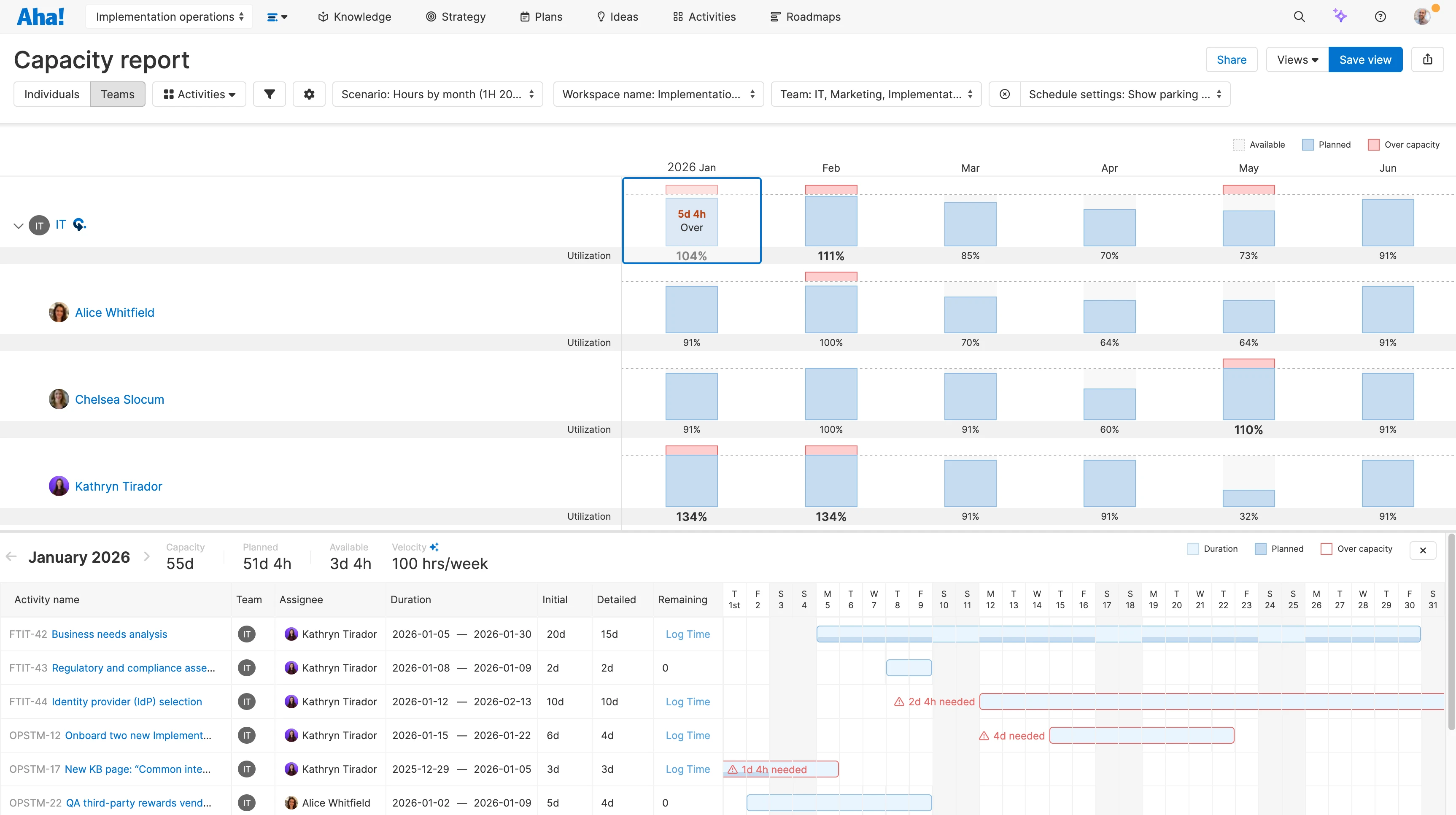
Create strategic roadmaps based on available resources. Sync estimates between Aha! Teamwork and Aha! Roadmaps — so everyone understands what it will take to deliver projects. Use the capacity report to understand each team's workload and identify constraints, adjusting the timing and scope of projects as needed.
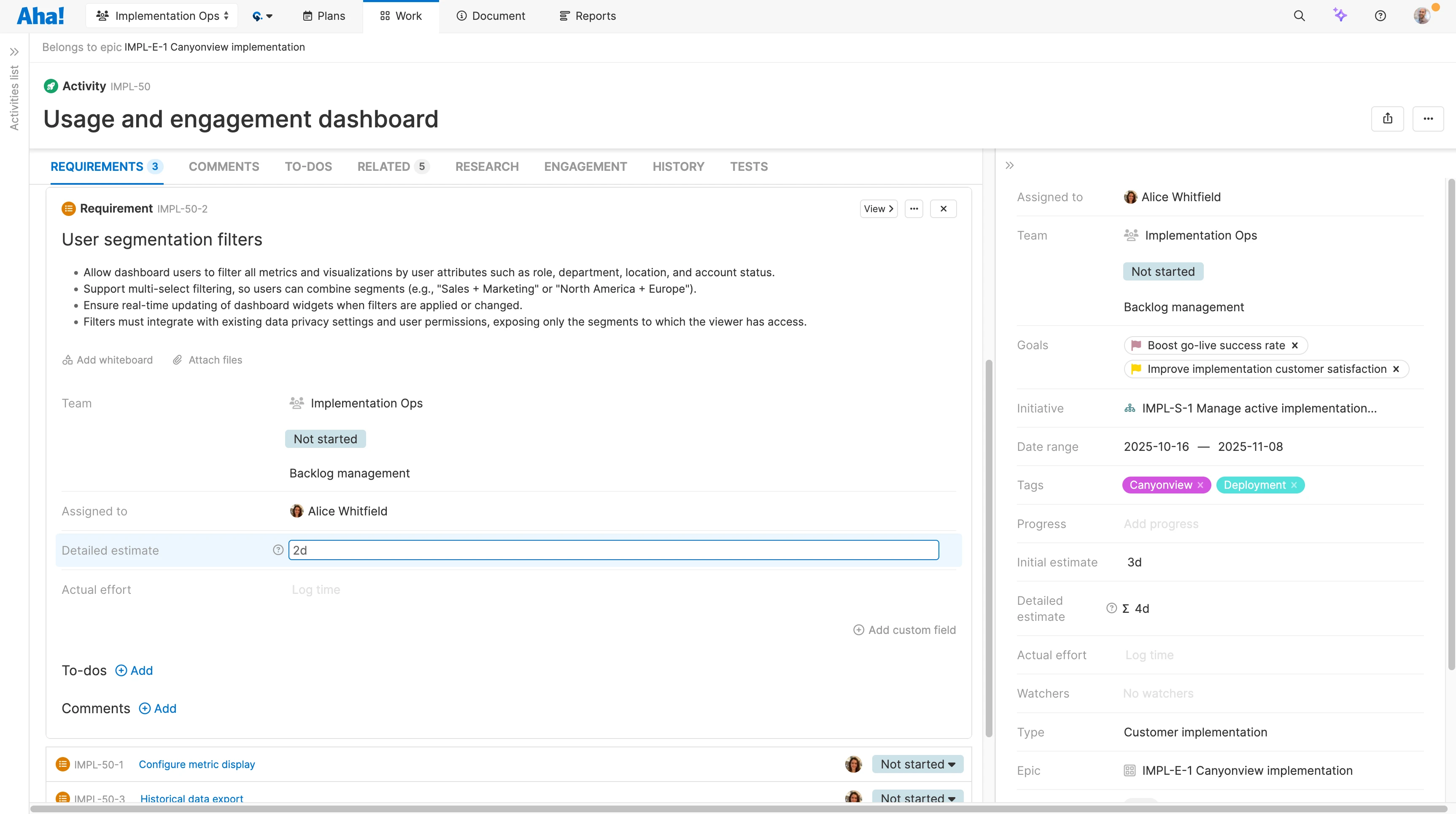
Dig deeper into the work as implementation gets closer. Break down activities into requirements and add a detailed estimate to each one. The total estimate for the activity rolls up, giving you a clear understanding of the effort. This provides another important checkpoint to spot capacity challenges before the project starts.

Use sprints to plan and work in iterations. Set the team's sprint capacity based on individual availability and velocity. Pull in work from your prioritized backlog and assign it to the right people. Balance the work to make sure no one is over or under capacity — so the team can commit to it with confidence.
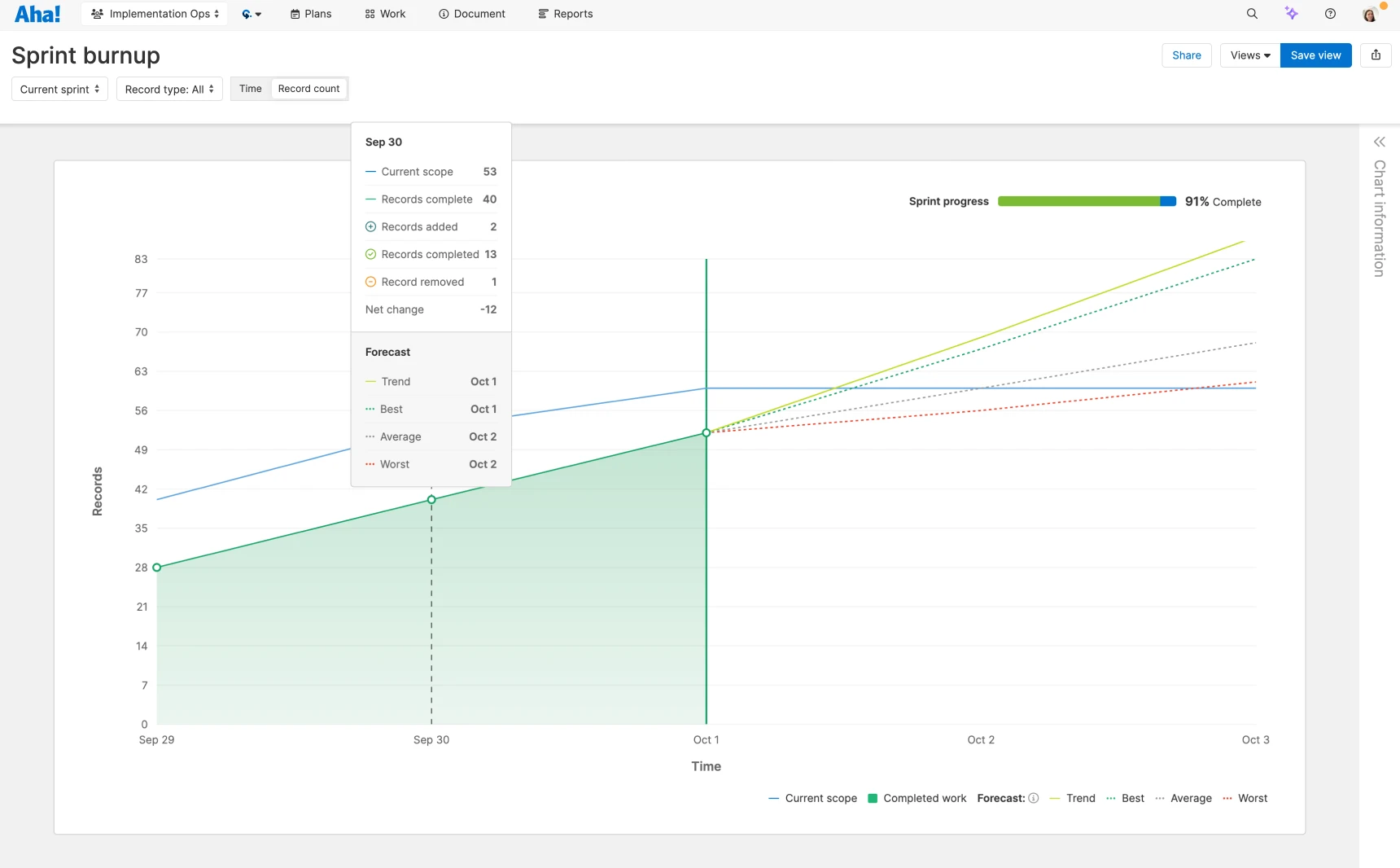
Log time as work progresses. This enables you to track remaining effort and predict when work will be completed. Monitor the burndown report to measure the team's pace. And use the burnup report to assess the impact of scope changes. This provides visibility so you can set clear expectations about what will be delivered and when.

Compare the difference between your estimates and how long the work actually took. Analyze team velocity to understand delivery trends. And use the sprint retrospective report to analyze plans versus actual results. This helps you improve capacity planning to plan future work more accurately.